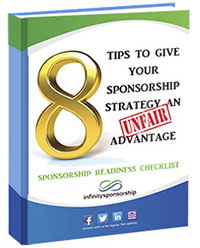“Knowing the skills and abilities you are looking for in a job candidate is only part of the picture. You also need to be clear about the type of person you are looking for – the attributes and strengths they will bring to your team and organisation.”
A wise colleague once said to me ‘we hire people based on the skills we are looking for, and we fire them based on the people they are.’ Years later, as Managing Director of my own company and in a role of supporting not-for-profit associations and charities to engage corporate sponsors, those wise words have stood me in good stead.
As government funding avenues become more and more uncertain, many Australian and New Zealand not-for-profits are starting to look to corporate sponsorship as a way to diversify their income streams. In the quest to seek, secure and diversify funding channels to sustain vital services and programs, many organisations are choosing to engage a Sponsorship Manager. (Let’s be honest though, it is a rare luxury to be in a position to engage one person for one role if you work for a not-for-profit. More commonly you will find that the Sponsorship Manager is also the Marketing Manager, Business Development Manager, Events Manager, Membership Officer or even the CEO!) These challenges aside, the question I am posed more often of late is ‘how do we recruit the right sponsorship/ marketing person for our organisation?’
Recognising that there are particular skills that you require a Sponsorship Manager to possess is the first step, but by no means the full story. Skills and experience tell you alot about a person and what kind of expertise they can potentially bring to your organisation, but particularly in the case of seeking the ideal Sponsorship Manager, delving into the kind of person they are will allow you more insights and to have a greater chance at long term success in hiring and retaining the right people. There are certain attributes that anyone who is successful in sponsorship possesses:
KEY ATTRIBUTES OF A GREAT SPONSORSHIP MANAGER
- Excellent communicator
- Great negotiator
- Proactive
- Patient
- Committed
- Self confident
- Active listener
- Ability to ‘think on your feet’
- Multi-tasker
- Loves people and building relationships
- Confident decision-maker
Depending on the kind of role you are looking to fill, there may be other qualities you are seeking in a potential candidate. For instance, if the sponsorship/marketing role is a newly created one within your organisation and there are no processes or policies in place around how you expect this role to function within the team, then someone who is a self-starter, with the ability to be entrepreneurial and innovative may be highly regarded.
On the other hand, if you are seeking to fill an established sponsorship or marketing role knowing that you would like processes to be undertaken in a certain way, then the idea of having an innovative person join the team who may wish to recreate the role you’ve worked hard to establish might not be qualities that you value highly. Each role and organisation is different, and so are the qualities you seek in potential candidates.
The way to gauge whether a prospective Sponsorship Manager will fit into your organisation and team, and whether they possess the attributes you are seeking is to ask values-based questions. Ruth Knight, Founder of the ‘Pillars of Best Practice’ (hyperlink) says that asking scenario-based questions that dig into a person’s values are going to give you the best chance of finding the right person for the right role. The key, she says is to take care to ask questions in a way that there is no clear right or wrong answer. This will ensure that people tap into their own creativity, values and moral code, rather than tell you what they think you want to hear.
There are myriad questions that you could ask that will give you an insight into how proactive, independent, creative, ethical and confident a candidate might be. Here are some examples:
- ‘Imagine that we have no current sponsorship policies or procedures in place and you are approached by a company to seek further information about becoming a corporate partner. What would you do?’
- ‘As part of our Sponsorship Policy, we offer annual corporate partners exclusivity in their respective industry or product category. Imagine that you are approached by two competing brands to partner with our organisation. What steps would you take to achieve the best outcome?’
- ‘Imagine that a brand approaches our organisation seeking a partnership, but there are concerns around the products the company sells and the core values of our organisation. How would you handle that situation?’
This line of questioning will give you a wealth of information about the thought processes a candidate goes through to reach an outcome. Combined with the more traditional interview questions that focus on skills and expertise will provide you with a much fuller insight into the person ‘behind the resume.’
Good luck!





